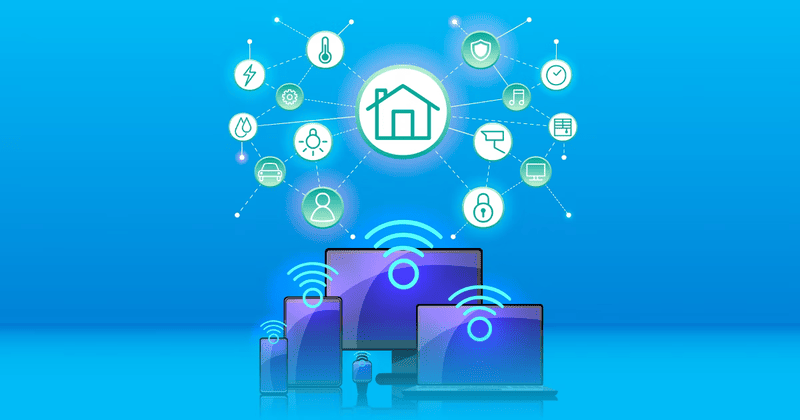Why Iot Is Enabling Smarter Energy Management

Are you tired of high energy bills and inefficient energy consumption? Look no further, because IoT is here to revolutionize your energy management!
With IoT, you can now have smarter control over your energy usage, thanks to its ability to connect and monitor various devices. Say goodbye to wasted energy and hello to a more sustainable future.
In this article, we will explore the role of IoT in energy management, the benefits it brings, and the exciting future trends it holds.
So, get ready to embrace a smarter way of managing your energy!
Key Takeaways
- IoT enables efficient monitoring and control of energy consumption.
- Real-time monitoring provides valuable insights into usage patterns.
- IoT applications optimize energy usage and minimize wastage.
- Embracing IoT trends contributes to a sustainable and energy-efficient future.
The Role of IoT in Energy Management
The role of IoT in energy management is becoming increasingly important. It allows for more efficient monitoring and control of energy consumption. With the integration of IoT in power grids, sensors play a vital role in energy management. These sensors are able to collect real-time data on energy usage. This allows for more accurate analysis and optimization of energy consumption. By monitoring energy usage at various points in the grid, IoT technology enables better identification of energy wastage and potential areas for improvement.
This data-driven approach to energy management helps in reducing energy costs and improving overall energy efficiency. Additionally, IoT allows for remote monitoring and control. This makes it easier to manage energy consumption in different locations. Overall, IoT and sensors are revolutionizing energy management. They provide valuable insights and enable smarter decision-making.
Benefits of IoT in Smart Energy Solutions
One major benefit of IoT in smart energy solutions is that it allows for more efficient and cost-effective energy usage. With the help of IoT devices and sensors, you can monitor your energy consumption in real-time, giving you valuable insights into your usage patterns. This enables you to make informed decisions on how to optimize your energy usage and reduce wastage.
Additionally, IoT-powered smart grids can analyze real-time data and use predictive analytics to anticipate energy demand and supply, ensuring a more stable and reliable energy grid.
Here are some key benefits of IoT in smart energy solutions:
- Improved energy efficiency
- Cost savings on energy bills
- Enhanced grid reliability and stability
- Better management of renewable energy sources
- Reduced environmental impact
IoT Applications for Efficient Energy Monitoring
Maximize your energy efficiency and reduce wastage by utilizing IoT applications for efficient energy monitoring. With the advancement of technology, energy optimization has become easier than ever. IoT allows for real-time monitoring of energy consumption, providing valuable insights and enabling proactive measures to reduce energy wastage. By implementing IoT solutions, you can track and manage energy usage in real-time, identify areas of high consumption, and take necessary steps to optimize energy usage.
To give you an idea of how IoT applications can help with energy monitoring, here is a table showcasing some examples:
| IoT Application | Benefits |
|---|---|
| Smart meters | Accurate measurement of energy consumption |
| Energy monitoring systems | Real-time data for better decision-making |
| Smart appliances and devices | Optimal energy usage and scheduling |
These applications not only enable efficient energy management but also contribute to cost savings and environmental sustainability. With IoT, you can take control of your energy consumption and make smarter choices for a greener future.
How Iot Is Revolutionizing Energy Consumption
Take control of your energy consumption and revolutionize the way you use and optimize energy with the help of IoT applications. With improved energy efficiency and remote energy monitoring, IoT is transforming the way we consume and manage energy.
Here are five key ways in which IoT is revolutionizing energy consumption:
- Real-time energy monitoring: IoT devices allow you to track your energy usage in real-time, providing you with valuable insights to make informed decisions.
- Smart appliances: IoT-enabled appliances can automatically adjust their energy usage based on your preferences and energy consumption patterns.
- Energy optimization: IoT applications analyze data from various sensors to optimize energy usage, ensuring that energy is used efficiently and wastage is minimized.
- Demand response: IoT systems can automatically respond to changes in energy demand, helping to balance the grid and reduce energy costs.
- Energy conservation: IoT applications provide valuable data and feedback to help you identify areas where you can conserve energy and reduce your carbon footprint.
Future Trends in IoT-Enabled Energy Management
Stay ahead of the curve and embrace the future of energy efficiency by exploring the latest trends in IoT-enabled energy management.
With the urgent need to reduce carbon emissions and integrate renewable energy sources into our grid, IoT technology is playing a crucial role. By connecting devices and systems, IoT enables real-time monitoring and control of energy consumption, allowing for smarter management and optimization.
One of the key trends in IoT-enabled energy management is the use of advanced analytics and machine learning algorithms to analyze energy data and provide actionable insights. This enables businesses and individuals to identify energy-saving opportunities, optimize energy usage, and reduce waste.
Additionally, IoT is facilitating the integration of renewable energy sources into the grid by enabling better energy forecasting, demand response, and smart grid management.
Embrace these trends and contribute to a more sustainable and energy-efficient future.
Frequently Asked Questions
How Does Iot Technology Impact the Overall Efficiency of Energy Management Systems?
IoT technology impacts the overall efficiency of energy management systems by enabling energy consumption monitoring and real-time energy optimization. You can track and control your energy usage more effectively, leading to cost savings and sustainable practices.
What Are Some Potential Challenges or Limitations of Implementing Iot in Energy Management?
Some potential challenges or limitations of implementing IoT in energy management include the need for robust cybersecurity measures, compatibility issues with existing infrastructure, and the cost of implementing and maintaining IoT systems.
Can Iot Solutions Be Easily Integrated With Existing Energy Infrastructure?
Yes, integrating IoT solutions with existing energy infrastructure can be easy, depending on compatibility concerns. However, there may be cost implications to consider when implementing IoT in existing energy management systems.
What Are the Security Measures in Place to Protect Iot-Enabled Energy Management Systems From Cyber Threats?
To protect your IoT-enabled energy management system from cyber threats, security measures such as encryption, authentication, and continuous monitoring are in place. These measures ensure the safety and integrity of your system.
How Can Iot Technology Help in Identifying and Reducing Energy Wastage in Commercial and Residential Buildings?
To identify and reduce energy wastage in commercial and residential buildings, IoT technology can be used. It helps implement energy-saving strategies and provides various benefits in energy management.





